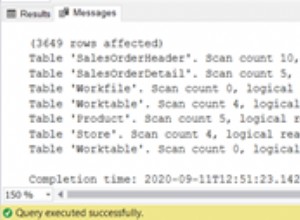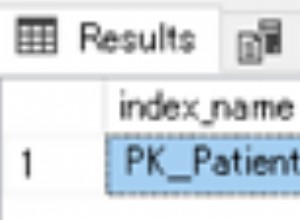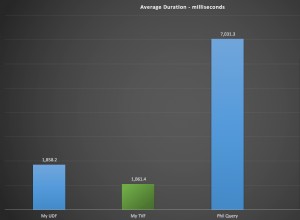In SQL Server 2012 è molto molto facile
SELECT col1, col2, ...
FROM ...
WHERE ...
ORDER BY -- this is a MUST there must be ORDER BY statement
-- the paging comes here
OFFSET 10 ROWS -- skip 10 rows
FETCH NEXT 10 ROWS ONLY; -- take 10 rows
Se vogliamo saltare ORDER BY possiamo usare
SELECT col1, col2, ...
...
ORDER BY CURRENT_TIMESTAMP
OFFSET 10 ROWS -- skip 10 rows
FETCH NEXT 10 ROWS ONLY; -- take 10 rows
(Preferirei contrassegnarlo come un hack, ma è usato, ad esempio da NHibernate. Usare una colonna saggiamente raccolta come ORDER BY è il modo preferito)
per rispondere alla domanda:
--SQL SERVER 2012
SELECT PostId FROM
( SELECT PostId, MAX (Datemade) as LastDate
from dbForumEntry
group by PostId
) SubQueryAlias
order by LastDate desc
OFFSET 10 ROWS -- skip 10 rows
FETCH NEXT 10 ROWS ONLY; -- take 10 rows
Nuove parole chiave offset e fetch next (solo seguendo gli standard SQL).
Ma immagino che tu non stia utilizzando SQL Server 2012 , giusto ? Nella versione precedente è un po' (poco) difficile. Ecco confronto ed esempi per tutte le versioni di SQL Server:qui
Quindi, questo potrebbe funzionare in SQL Server 2008 :
-- SQL SERVER 2008
DECLARE @Start INT
DECLARE @End INT
SELECT @Start = 10,@End = 20;
;WITH PostCTE AS
( SELECT PostId, MAX (Datemade) as LastDate
,ROW_NUMBER() OVER (ORDER BY PostId) AS RowNumber
from dbForumEntry
group by PostId
)
SELECT PostId, LastDate
FROM PostCTE
WHERE RowNumber > @Start AND RowNumber <= @End
ORDER BY PostId




